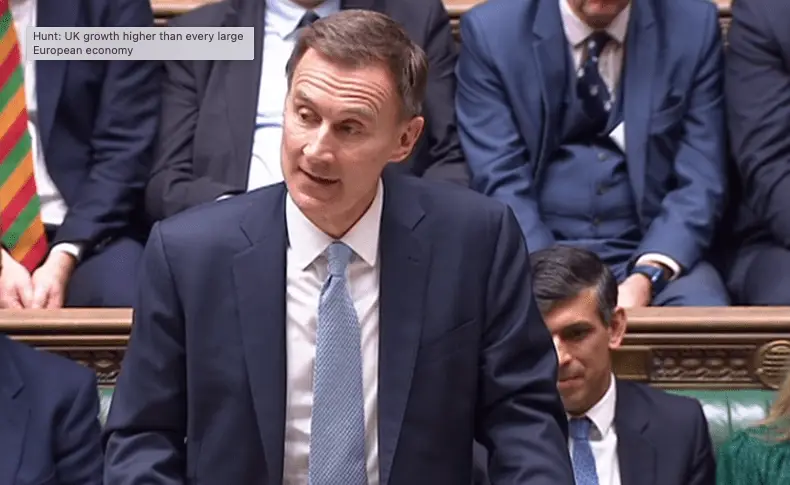Jeremy Hunt, the former chancellor, has dismissed Labour’s accusations of a £22 billion fiscal ‘black hole’. In a recent interview, he defended his financial legacy and discussed future strategies for the Conservative Party as he moves to the back benches.
Hunt appeared confident while criticising Labour’s stance. He argues that Labour leader Rachel Reeves’s fiscal policies are flawed and reveals why he believes her claims to be politically motivated.
Dismissal of Fiscal Claims
Jeremy Hunt has firmly rejected Rachel Reeves’s accusations of a £22 billion fiscal gap. Describing these claims as unfounded and politically motivated, Hunt remains adamant about the soundness of his fiscal policies.
Hunt posits that such a significant fiscal gap would have been flagged by Treasury officials. He calls the allegations fictitious and a political manoeuvre by his successor.
Reeves’ Allegations
Rachel Reeves asserts that Hunt’s financial policies have led to a £22 billion deficit, forcing Labour into difficult decisions, such as cancelling infrastructure projects. She criticises Hunt’s management and suggests it necessitates unpopular tax increases.
Hunt counters by highlighting his historically positive relationship with Reeves. He expresses disappointment in her tactics and stresses that her claims allow the Conservative party to challenge Labour’s proposed tax hikes.
Strategic Planning and Public Finances
Hunt emphasises that pressures on public finances are constant but manageable through effective planning and productivity improvements.
He criticises Reeves’s decision to implement £9.4 billion in public sector pay rises without addressing productivity inefficiencies, which he labels unsustainable. Hunt underscores that ignoring productivity issues will strain public finances further.
Hunt also rejects claims of overspending on the asylum system and the misuse of the reserve fund. He argues that Labour’s decision to cancel the Rwanda scheme has increased costs instead of saving money.
Looking Ahead
As he prepares a counterattack, Hunt serves temporarily as shadow chancellor. He advises the Conservative Party to tackle critical issues like immigration and the housing crisis to regain voter trust, particularly among younger demographics.
Reflecting on the Conservatives’ electoral defeat, Hunt calls for strategic patience and suggests learning from Labour’s approach under Keir Starmer. He remains confident in his legacy, citing favourable economic indicators as proof of his effective leadership.
Future Strategies for Conservatives
Hunt advocates addressing key challenges, such as immigration and housing, to win over younger voters.
He believes that clear, policy-driven solutions are essential for the Conservative Party’s rejuvenation and future success. Hunt’s focus remains on strategic planning and long-term vision.
Confidence in Legacy
Despite stepping down, Hunt stands by his financial legacy, viewing current economic indicators as testament to his effective management.
As the Conservative leadership contest continues, Hunt intends to return to the back benches but leaves his endorsement open. He remains committed to policy-driven solutions for the party’s obstacles.
Jeremy Hunt remains unwavering in his defence against Labour’s fiscal allegations. He stresses the importance of strategic planning and productivity improvements in managing public finances.
As Hunt transitions to the back benches, his focus on policy-driven solutions and addressing key issues like immigration and housing continues to shape his vision for the Conservative Party’s future.

